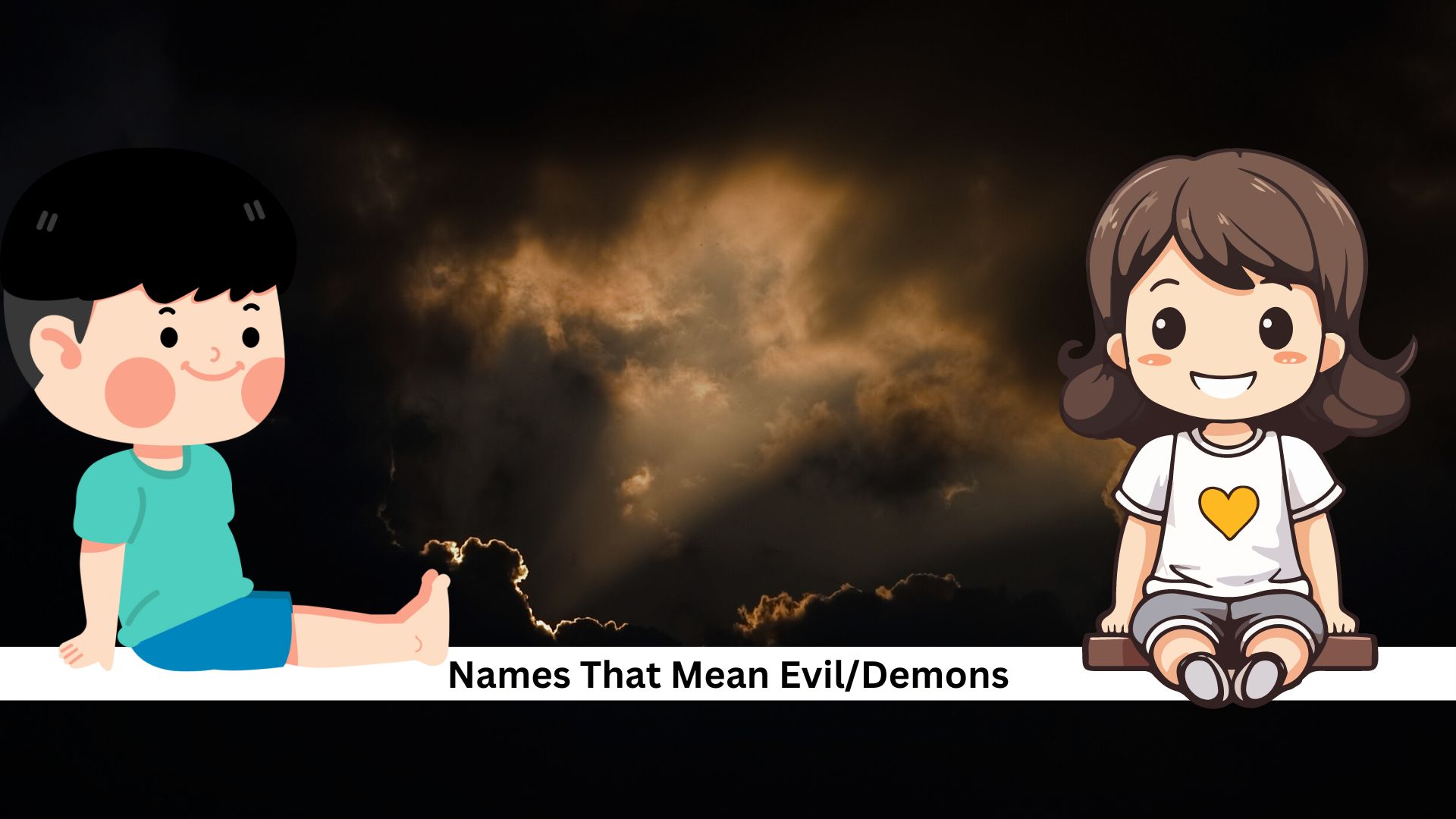Exploring what names mean can tell us a lot about our cultural background and what we value—or fear. Names linked to ‘evil’ or ‘demon’ tap into a rich mix of myths, folklore, and history. These stories show how different cultures view darkness and evil.
Our list of 120 unique names does more than just trace where these names come from. It also shares tales of gods, spirits, and mythological figures that carry these dark tags. Diving into these names opens up a deep part of cultural psychology. It shows how the names we choose can shape our identity and how others see us.
Top 120 Evil/Demon Baby Names For Boys & Girls
60 Evil Boy Names
Choosing a name from our list of top 120 evil or demon-themed baby names for boys can make your child’s name intriguing and unique. Consider names like Arawn, from Welsh mythology, who is the god of the underworld, or Chernobog, the Slavic god of darkness and evil. These names bring powerful historical and cultural meanings.
These names are not just memorable; they’re filled with deep stories and mythological importance. They give a unique identity that makes a mark, showing strength and an intriguing charm.
- Malum (Latin) – Meaning “evil”, this name directly conveys malevolence.
- Ravana (Sanskrit) – From the multi-headed demon king of Lanka, symbolizing power and fear.
- Anubis (Egyptian) – God of the dead, associated with mummification and the afterlife.
- Seth (Egyptian) – God of chaos, storms, and war, often depicted as a figure of destruction.
- Ahriman (Persian) – In Zoroastrianism, the spirit of evil and darkness.
- Iblis (Arabic) – The primary devil in Islam, rejected by God after refusing to bow to Adam.
- Chernobog (Slavic) – Literally “black god”, a deity of misfortune and evil.
- Teivel (Yiddish) – Yiddish for “devil”, straightforward in its dark intent.
- Vritra (Sanskrit) – A dragon or serpent, the personification of drought and adversary in Vedic mythology.
- Belial (Hebrew) – Signifying “worthless” or “wicked”, a term used for Satan.
- Lilith (Hebrew) – A demonic figure reputedly the first wife of Adam, associated with the night.
- Loki (Norse) – A trickster god known for deceit and leading to chaos.
- Fenrir (Norse) – A monstrous wolf, destined to kill the god Odin during Ragnarök.
- Dracula (Romanian) – Meaning “son of the dragon” or “devil”, famously linked to the vampire legend.
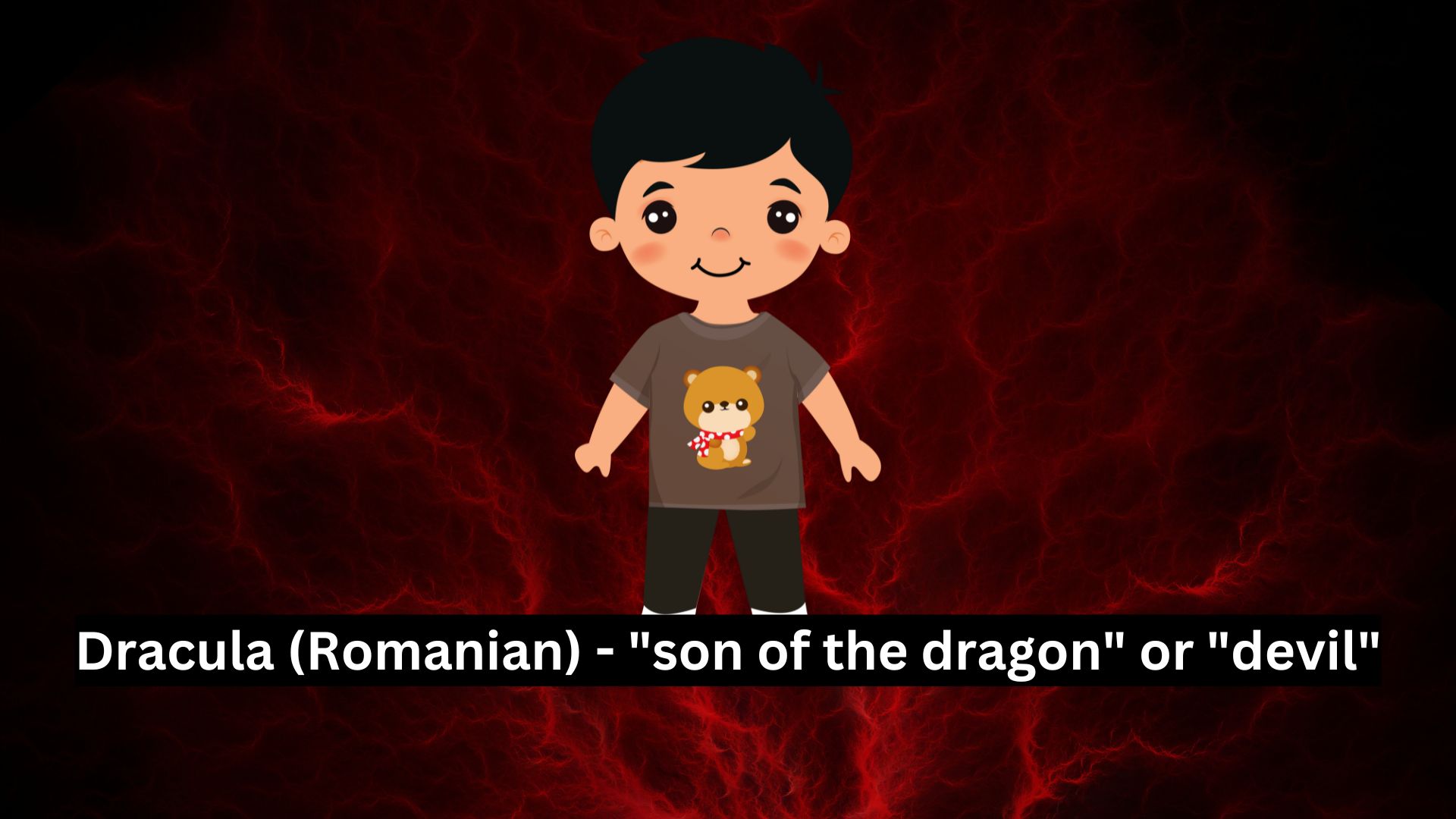
- Hades (Greek) – God of the underworld, often portrayed in a negative light.
- Thanatos (Greek) – Personification of death, not inherently evil but often feared.
- Morfran (Welsh) – Meaning “great crow”, linked to otherworldly and demonic elements.
- Nerezza (Italian) – Means “darkness”, symbolizing an absence of goodness.
- Oyama (Japanese) – Means “great mountain”, often depicted in legends as haunted or cursed places.
- Typhon (Greek) – A monstrous serpentine giant, the deadliest creature in Greek mythology.
- Samhain (Gaelic) – Named after the pagan festival, often associated with the darker aspects of the supernatural.
- Apep (Egyptian) – The serpent deity embodying chaos and opposition to the cosmic order.
- Samael (Hebrew) – Often considered the angel of death, a complex figure linked to both good and evil.
- Legion (Latin) – Biblical demon, an embodiment of many evils.
- Kaliya (Sanskrit) – A poisonous naga defeated by Lord Krishna, represents darkness and fear.
- Bakar (Hebrew) – Means “firstborn”, often used in the context of curses and foreboding.
- Daeva (Persian) – In Zoroastrianism, a type of demon symbolizing wrong principles.
- Mara (Buddhist) – A demon that tempted Buddha, representing the force that hinders spiritual progress.
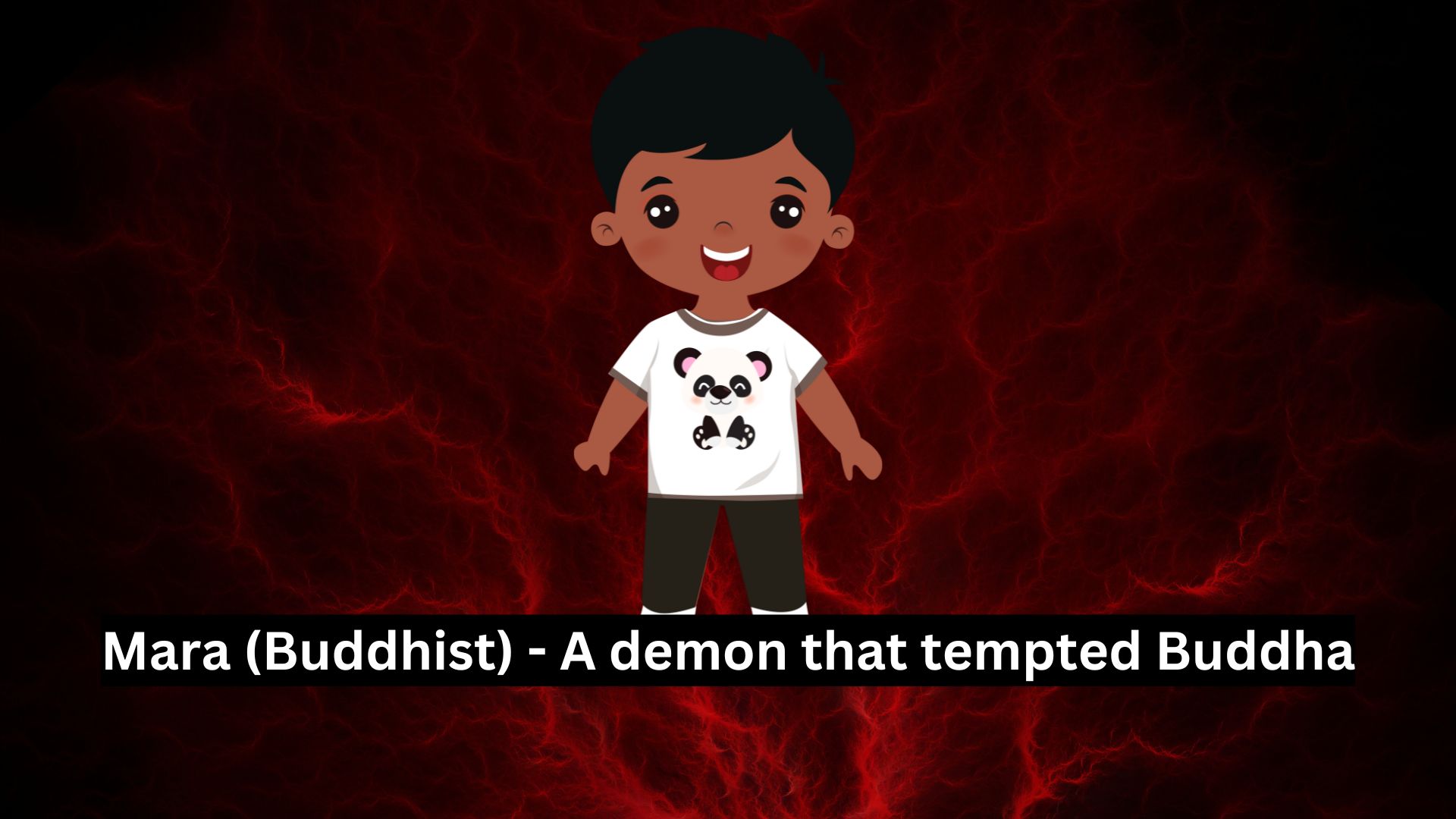
- Zepar (Mystical) – A demon from occult lore, known for causing discord and lust.
- Abaddon (Hebrew) – Meaning “destruction”, an angel of the abyss in biblical lore.
- Vlad (Slavic) – Short for Vlad the Impaler, known for his cruel methods of punishment.
- Bael (Mystical) – A king of Hell in demonology, commanding invisibility and cunning.
- Cain (Hebrew) – First murderer according to biblical stories, symbolizing the original evil.
- Griffith (Welsh) – Meaning “strong lord”, often depicted in tales as ruthless and tyrannical.
- Orobas (Mystical) – A powerful prince of hell from demonology, known for deceit.
- Hannibal (Phoenician) – Meaning “grace of Baal”, known historically as a brilliant but ruthless military commander.
- Judas (Hebrew) – The apostle who betrayed Jesus, synonymous with treachery.
- Azazel (Hebrew) – A fallen angel whose name is synonymous with scapegoating and impurity.
- Tartarus (Greek) – The deepest part of the underworld, a dungeon of torment and suffering.
- Vepar (Mystical) – A demon said to control the waters, often linked to storms and shipwrecks.
- Kazan (Turkish) – Means “cauldron”, symbolizing turmoil and unrest.
- Dantalion (Mystical) – A demonic duke who can manipulate thoughts and emotions.
- Kaiwan (Akkadian) – Meaning “steadfast”, historically a deity associated with the planet Saturn and considered malefic.
- Adrammelech (Assyrian) – A god to whom children were sacrificed, representing the epitome of evil.
- Naberius (Mystical) – A cunning demon of the necromancy, skilled in arts and rhetoric.
- Sutekh (Egyptian) – Another form of Seth, symbolizing storms and disorder.
- Hecate (Greek) – Although often female, this god of magic and crossroads has male associations in some myths, linked to ghosts and necromancy.
- Merihim (Mystical) – A prince of pestilence, spreading disease and suffering.
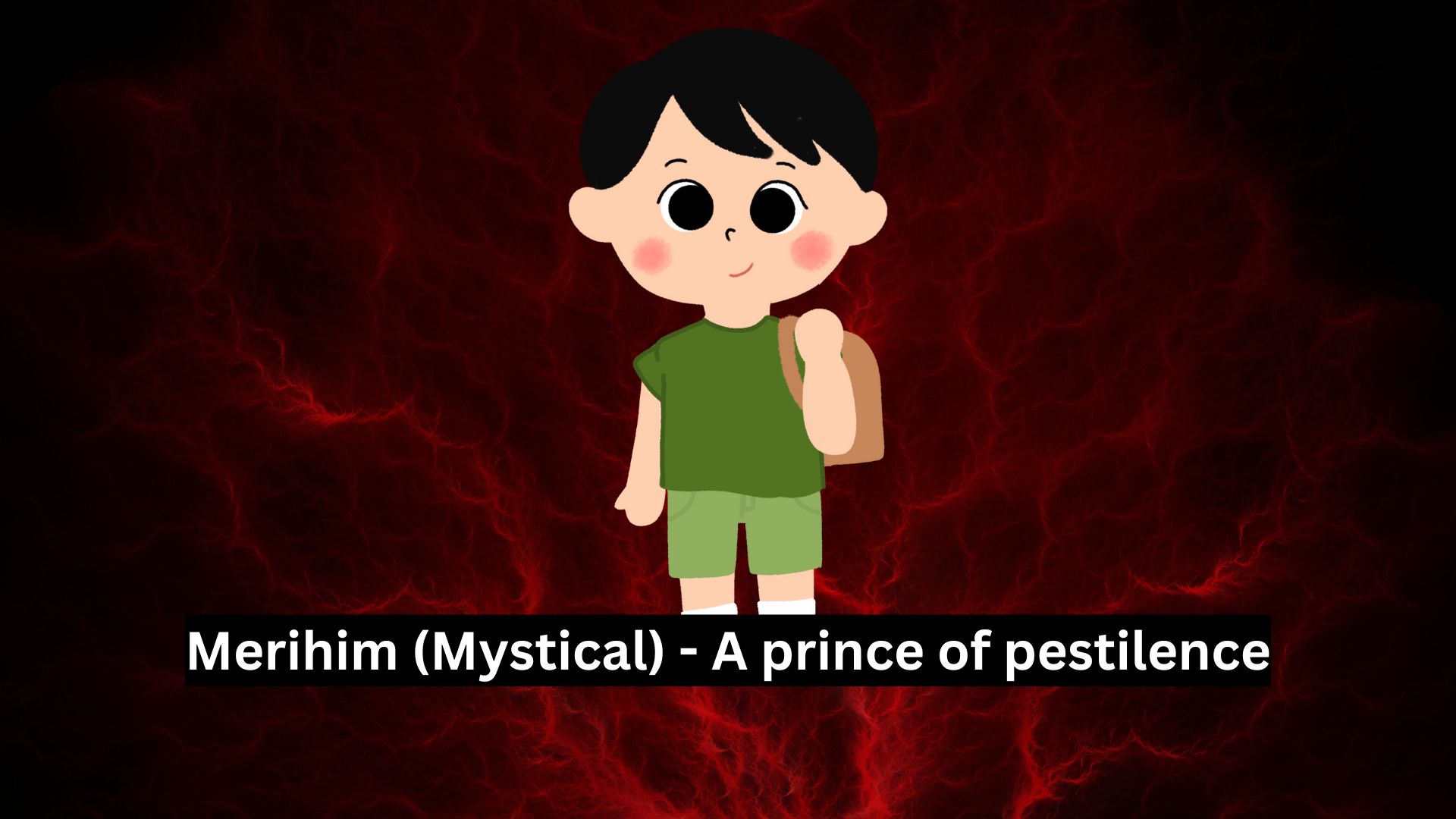
- Nergal (Babylonian) – A god of plague and war, representing destruction and the underworld.
- Leviathan (Hebrew) – A sea monster symbolizing chaos and often considered an evil entity.
- Gorgon (Greek) – While typically a term for Medusa and her sisters, it embodies malevolence and danger.
- Orthus (Greek) – A two-headed dog guarding the cattle of Geryon, associated with vigilance and aggression.
- Dybbuk (Jewish) – A malicious possessing spirit believed to be the dislocated soul of a dead person.
- Yam (Canaanite) – God of the sea and rivers, often at odds with Baal, a force of chaos and destruction.
- Crom (Celtic) – A deity demanding sacrifice, enveloped in mystery and fear.
- Mictlantecuhtli (Aztec) – God of the dead, overseeing the lowest layer of the underworld.
- Tchort (Slavic) – Literally “black god”, an epithet for the devil in Russian folklore.
- Balor (Celtic) – A fearsome leader with a deadly eye that wreaks havoc and death.
- Marbas (Mystical) – A demon known for spreading diseases and mastering mechanical arts.
- Brom (Germanic) – Meaning “raven”, a bird often associated with battlefields and omens of death.
60 Evil Girl Names
Our list of 120 evil or demon-themed baby names for girls delves into the darker side of charm and mythology. Take Lilith, for example, known from ancient stories as a night demon who seduces.
Then there’s Mara, from Sanskrit, meaning death and temptation. Lamia’s story in Greek mythology is also chilling: once a queen, she turned into a demon who eats children. Each name on our list carries a strong story, perfect if you’re looking for a name with deep, dark roots.
- Lilith (Hebrew) – According to folklore, she was Adam’s first wife who rebelled and became a night demon.
- Morgana (Welsh) – From Morgan le Fay, the enchantress in Arthurian legend, known for her sorcery and manipulation.
- Hecate (Greek) – Goddess of witchcraft and magic, often associated with ghosts and the underworld.
- Delilah (Hebrew) – Biblical figure who betrayed Samson, symbolizing deceit.
- Jezebel (Hebrew) – A queen known for her wickedness and promotion of false prophets.
- Kali (Sanskrit) – Though a powerful goddess, Kali’s fierce and destructive side is often emphasized in tales.
- Medea (Greek) – Sorceress who used her powers for revenge, infamous for killing her own children.
- Lamia (Greek) – A figure who transformed into a child-eating monster after her children were destroyed by Hera.
- Bellatrix (Latin) – Means “female warrior,” known from modern literature as a dark and ruthless character.
- Circe (Greek) – Enchantress who used her magic to turn men into animals, symbolizing seduction and peril.
- Erzsebet (Hungarian) – Inspired by Countess Elizabeth Bathory, notorious for her cruel acts.
- Maleficent (English) – Literally “doing evil,” a modern character known for her dark magic and vengeance.
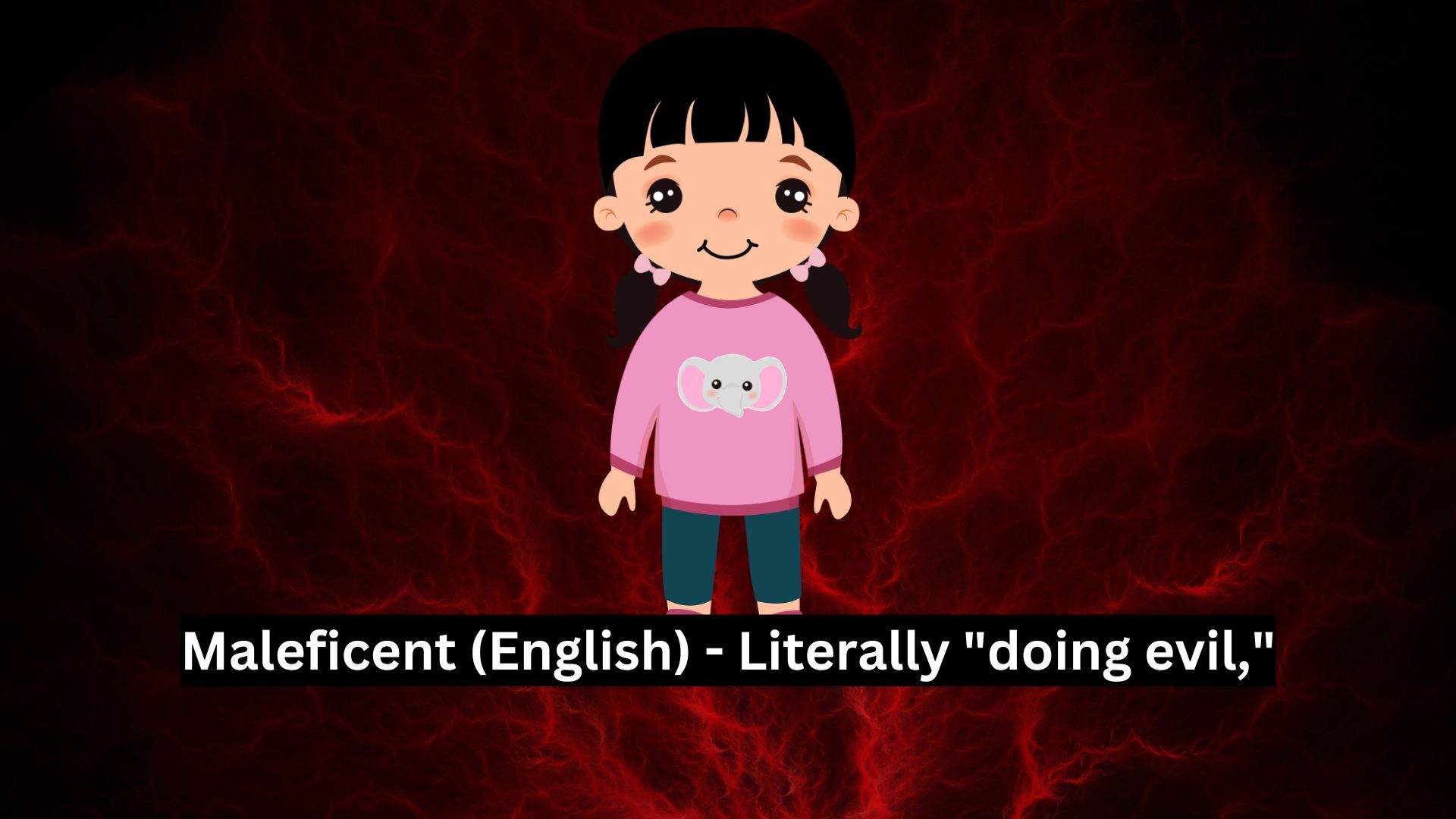
- Baba Yaga (Slavic) – A fearsome witch from folklore, known for eating those who displease her.
- Mara (Norse) – A nightmare spirit, bringing bad dreams and psychological terror.
- Nimue (Welsh) – Also known as Lady of the Lake in Arthurian legends, who traps Merlin with his own spells.
- Selene (Greek) – Goddess of the moon who can manipulate emotions and perceptions.
- Tiamat (Babylonian) – A dragon goddess of chaos and creation, often depicted as a monstrous entity.
- Persephone (Greek) – Queen of the underworld, representing death and the darker side of nature.
- Morrigan (Celtic) – Goddess of war and death, often appearing as a harbinger of doom.
- Pandora (Greek) – First human woman created by the gods, whose curiosity released evil into the world.
- Samara (Hebrew) – Means “guardian” but known in modern horror as a malevolent spirit.
- Alecto (Greek) – One of the Furies, relentless in her pursuit of punishing wrongdoers.
- Asa (Hebrew) – Meaning “healer,” ironically used for a character who harbors a dark secret.
- Desdemona (Greek) – “Ill-fated one,” known from literature as a tragic figure enveloped in deception and death.
- Hela (Norse) – Goddess of death and ruler of the underworld in Norse mythology.
- Isolde (German) – A tragic heroine often associated with betrayal and death in stories.
- Jadis (French) – The White Witch, known for bringing eternal winter and tyranny in Narnia.
- Kalma (Finnish) – Goddess of death and decay, her name means “corpse stench.”
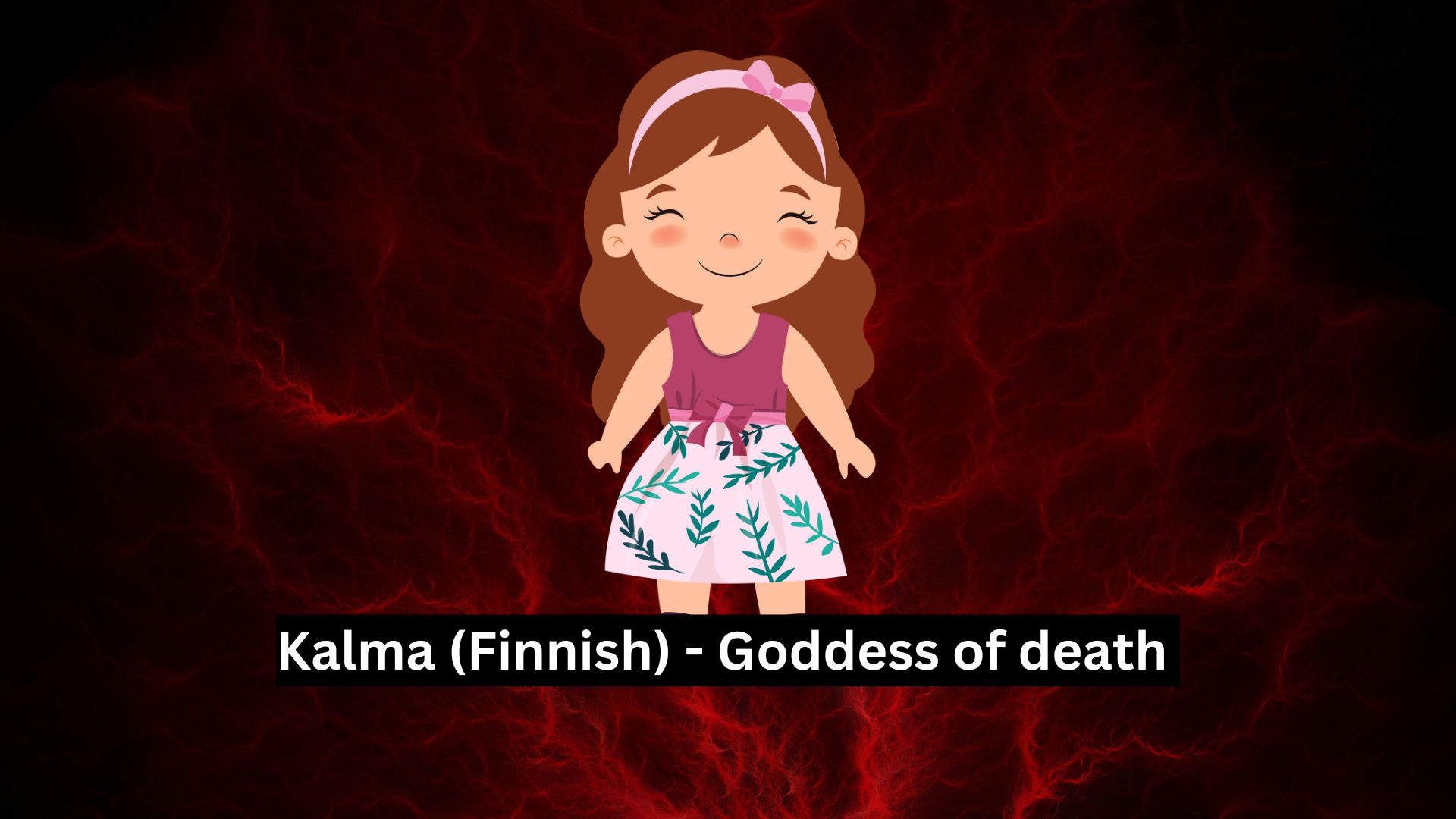
- Levana (Hebrew) – An ancient spirit associated with the night and sometimes with evil spirits.
- Melisande (French) – Means “strong in work,” known in tales for cunning and secret motives.
- Nyx (Greek) – Primordial goddess of the night, representing darkness and mystery.
- Ondine (German) – A water nymph who curses her unfaithful lover, associated with loss and vengeance.
- Rusalka (Slavic) – A water spirit that lures young men to their deaths.
- Sirena (Greek) – A siren who seduces sailors to shipwreck, synonymous with fatal attraction.
- Thana (Arabic) – Means “death,” an ominous name that carries a grave meaning.
- Ursula (Latin) – Means “little bear,” famously used for a sea witch in tales.
- Velvet (English) – Soft to the touch but associated with dark, deep colors and nighttime.
- Xanthe (Greek) – Means “golden,” but used in folklore for mysterious and otherworldly creatures.
- Yuki-onna (Japanese) – A snow woman, known for freezing travelers, representing coldness and death.
- Zephyra (Greek) – A gentle breeze, but with an undertone of causing unexpected change and turmoil.
- Amaris (Latin) – “Child of the moon,” connoting hidden darkness or dual nature.
- Blair (Scottish) – Associated with battlefields, often used in modern contexts to imply a sinister presence.
- Carmilla (Latin) – From Gothic literature, a vampire known for seduction and terror.
- Drusilla (Latin) – Ancient name implying strength but used for tragic or twisted characters in stories.
- Eris (Greek) – Goddess of strife and discord, known for instigating the Trojan War.
- Griselda (German) – Represents dark endurance, often used in folklore for characters enduring grim fates.
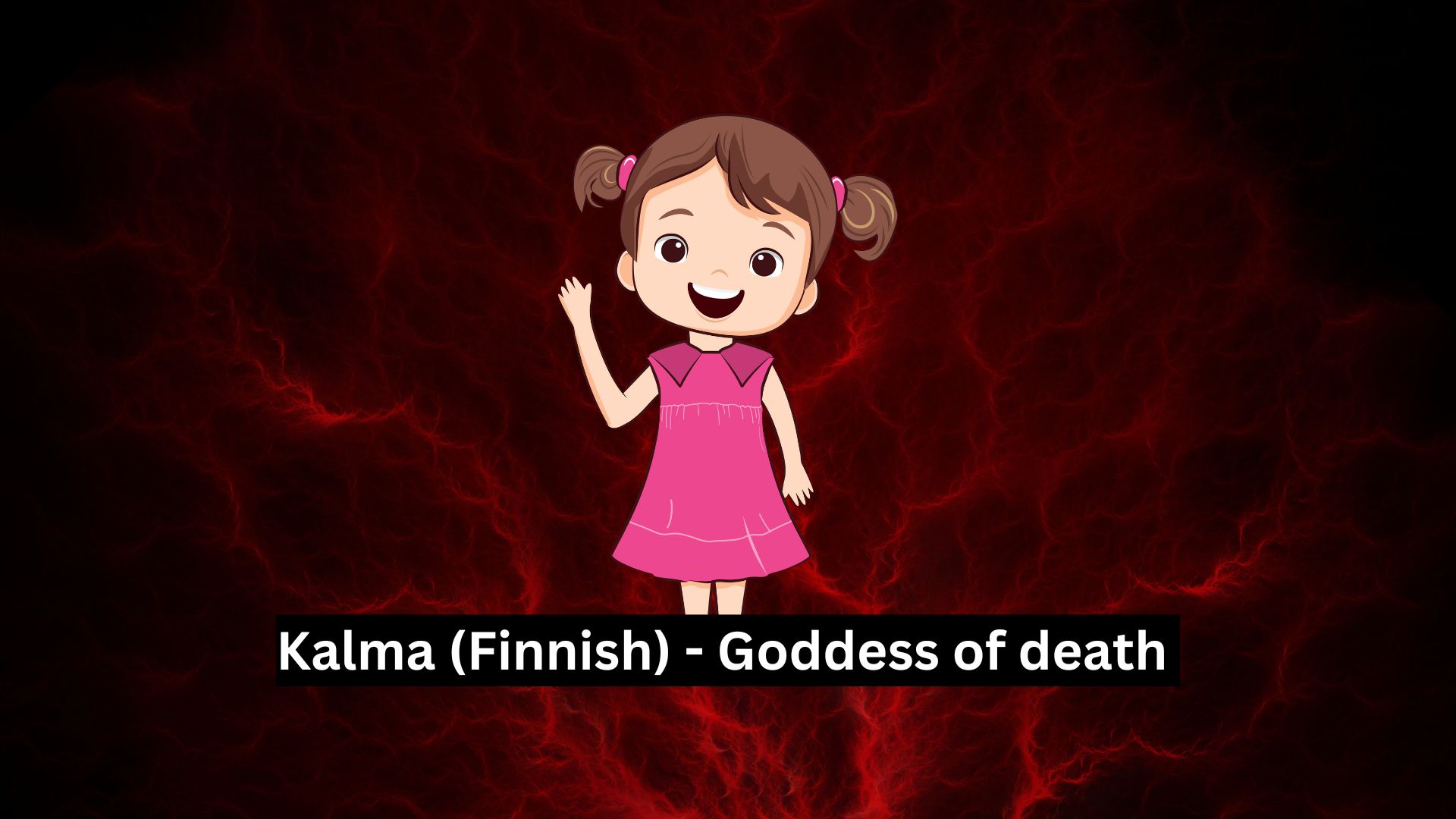
- Hesper (Greek) – “Evening star,” signaling the coming of night and the unknown.
- Ignacia (Latin) – “Fiery,” a name with connotations of uncontrollable passion and destruction.
- Keres (Greek) – Dark spirits of death and doom that personify violent or cruel deaths.
- Mab (Celtic) – Queen of the fairies, often depicted with a dark and vengeful side in myths.
- Nocturna (Latin) – Related to the night, suggestive of mystery and hidden dangers.
- Ophelia (Greek) – Means “help,” but known for her descent into madness and tragic end.
- Phaedra (Greek) – Means “bright,” but known for her tragic and destructive love in mythology.
- Ravena (English) – Echoes the dark and ominous bird, a symbol of death and prophecy.
- Sable (Slavic) – Black, representing darkness and often associated with mourning.
- Tanith (Phoenician) – Ancient goddess of love and war, with a dual nature of creation and destruction.
- Vespera (Latin) – “Evening star,” suggestive of darkness falling and the stirring of nocturnal secrets.
- Wednesday (English) – Named after Odin’s day, linked to mystery and intrigue through modern fictional portrayals.
- Xylia (Greek) – “Forest dweller,” often used in stories for characters with hidden or mystical natures.
- Zilla (Hebrew) – “Shadow,” evokes an image of something lurking and ominous.
You may also like our article on Japanese Names That Mean Blood!
Historical and Fictional Evil Names
These names, drawn from history, mythology, and fiction, each carry a rich association with evil, making them iconic symbols of malevolence in their respective narratives.
- Vlad (Romanian) – Origin: Historical. Associated with Vlad the Impaler, a ruthless ruler known for his brutal methods, inspiring the Dracula legend.
- Lilith (Hebrew) – Origin: Mythological. Known as a demon in Jewish folklore, represents darkness and chaos.
- Morgana (Celtic) – Origin: Arthurian Legend. Morgana le Fay, a powerful sorceress often depicted as a villain.
- Hades (Greek) – Origin: Mythological. God of the underworld, ruling over the dead and associated with darkness.
- Sauron (Sindarin) – Origin: Fictional (J.R.R. Tolkien’s Middle-earth). The Dark Lord in “The Lord of the Rings,” embodies pure evil.
- Medusa (Greek) – Origin: Mythological. A Gorgon whose gaze could turn people to stone, symbolizing terror and destruction.
- Loki (Norse) – Origin: Mythological. A trickster god known for causing chaos and mischief.
- Azazel (Hebrew) – Origin: Biblical. A fallen angel associated with sin and impurity.
- Dracula (Romanian) – Origin: Fictional (Bram Stoker’s novel). A vampire lord symbolizes immortality and predation.
- Bellatrix (Latin) – Origin: Fictional (J.K. Rowling’s “Harry Potter”). A Death Eater known for her cruelty and loyalty to Voldemort.
- Mephistopheles (German) – Origin: Literary (Goethe’s “Faust”). A demon who tempts Faust, representing cunning and malevolence.
- Jezebel (Hebrew) – Origin: Biblical. A queen, known for her wickedness and idolatry.
- Chernobog (Slavic) – Origin: Mythological. The Black God in Slavic mythology, symbolizes evil and darkness.
- Iago (Spanish) – Origin: Literary (Shakespeare’s “Othello”). A manipulative villain known for his deceit and treachery.
- Kali (Sanskrit) – Origin: Hindu Mythology. A goddess associated with destruction and death is often misunderstood as purely evil.
- Baba Yaga (Slavic) – Origin: Folklore. A witch known for her evil deeds and terrifying presence.
- Lucifer (Latin) – Origin: Biblical. Often associated with Satan, representing ultimate evil and rebellion against God.
- Grendel (Old English) – Origin: Literary (Beowulf). A monstrous creature terrorizes the kingdom, symbolizing pure malice.
- Ravana (Sanskrit) – Origin: Hindu Mythology. A demon king known for abducting Sita, embodying evil and arrogance.
- Moriarty (English) – Origin: Literary (Arthur Conan Doyle’s “Sherlock Holmes”). A criminal mastermind and Holmes’ nemesis, representing genius twisted towards evil.
Conclusion
In short, studying 120 unique names tied to evil and demons from different cultures helps us understand world myths better. It also shows how different people see dark forces. These names, rich in history and culture, give us deep insights into what people valued and feared long ago and even today. Choosing one of these names can add a touch of mystery and strength to any character or idea. In the end, choosing a name with a dark meaning is a personal choice tied to your culture, taste, or beliefs.
Keep visiting our blog The Jeep Diva for more such articles.

Fahmea Shorok is a well-traveled writer who focuses on entertainment journalism. Her work reflects her journeys and showcases her flexible writing style. She explores local art scenes wherever she goes, giving her readers a close look at the entertainment found around the world in theaters, movies, and art galleries.

